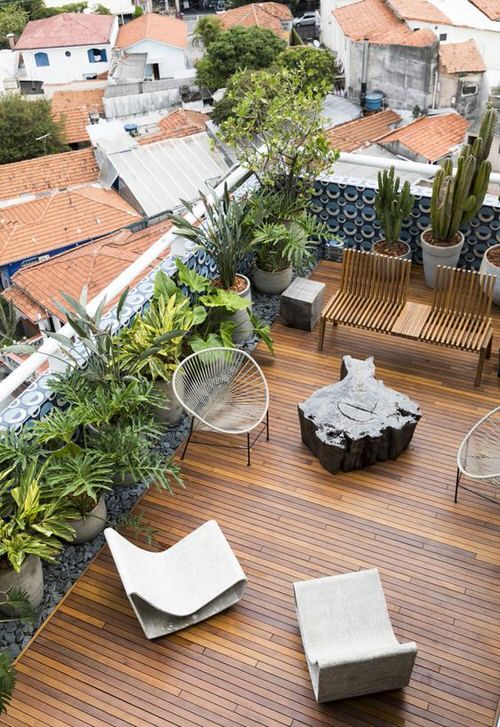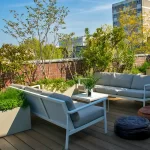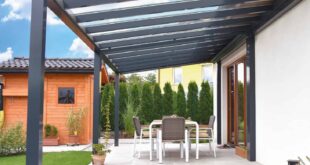A roof garden is a type of garden that is created on top of a building, usually a residential or commercial one. These gardens can vary in size and design, but they are typically constructed on flat roofs that are able to support the weight of the garden. Roof gardens can provide a number of benefits, both for the building and the environment.
One of the primary benefits of a roof garden is its ability to help reduce energy costs. The vegetation on the roof can provide insulation, helping to keep the building cool in the summer and warm in the winter. This can result in lower heating and cooling costs for the building’s occupants. Additionally, the plants on the roof can help to filter pollutants from the air, improving air quality in the surrounding area.
Roof gardens can also help to mitigate the urban heat island effect, which can cause cities to be significantly warmer than surrounding rural areas. The plants on a roof garden can help to absorb heat and reduce the temperature of the building and the surrounding area. This can help to create a more comfortable living and working environment for those in the building, as well as reduce the demand for air conditioning in the summer.
In addition to environmental benefits, roof gardens can also provide a number of social and recreational benefits. They can create green spaces in urban areas where open land is limited, providing opportunities for relaxation and outdoor activities. Roof gardens can also help to improve the aesthetics of a building, adding a touch of greenery to an otherwise concrete jungle.
There are many different types of plants that can be grown in a roof garden, depending on the specific conditions of the site. Succulents, grasses, and herbs are popular choices for roof gardens, as they are typically low-maintenance and drought-resistant. However, with proper planning and care, a wide variety of plants can thrive on a roof garden.
Overall, roof gardens can provide a host of benefits for both buildings and the environment. From reducing energy costs and improving air quality to providing recreational and aesthetic benefits, roof gardens are a sustainable and attractive addition to any building. Whether on a residential home or a commercial building, a roof garden can help to create a greener, healthier, and more enjoyable living or working environment.















